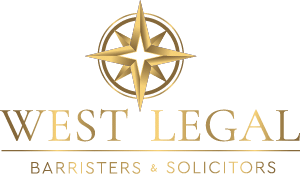Estate Planning for Personal Property
Personal belongings are an important consideration in a well thought out Estate plan. We tend to think about the ‘big assets’ first when Estate Planning—land, houses, investment accounts, life insurance policies, RRSPs, etc., however, it’s also important to plan for your personal property. Vehicles, jewelry, artwork, sentimental items, family heirlooms, collectibles, and other personal belongings are sometimes overlooked during the Estate Planning process.
When it comes to Estate Planning for personal property, there isn’t a one-size-fits-all approach that suits everyone. Personal belongings differ from person-to-person, and personalities often play an important role in determining which Estate Planning strategy is the right fit. Some people are sentimental, while others are practical and prefer to keep their Estate Plan as straightforward as possible.
Regardless of what strategy you choose to employ, an effective Estate Plan will take your personal belongings into consideration. There are 3 main options when it comes to Estate Planning for personal belongings. Whether you choose one option or a combination of the three, each option has pros and cons that we’ll address below.
Option 1: Specific Bequests
A specific bequest is a testamentary gift, or a gift made in a Will, of a specific asset, personal item, or dollar amount to a named beneficiary. There’s no restriction on the type of property that can be bequeathed by a specific bequest, however, the bequest has to be, as the name suggests, as specific as possible.
Here are two examples of valid specific bequests:
- I direct my Executor to pay or transfer Ten-Thousand ($10,000.00) Dollars to my nephew, John Smith.
- I direct my Executor to transfer my grandmother’s diamond engagement ring to my daughter, Jane Doe, for her own use and benefit absolutely.
The biggest advantage of using specific bequests for personal property items is that the gift is formalized by the Will, which is a legally binding document—in other words, when you pass away, provided that your Will is otherwise valid, your Executor must distribute the specific bequests to the named beneficiaries. Courts are reluctant to override a Will-maker’s intentions, so it’s likely that a specific bequest made in the Will is carried out.
There several disadvantages of using multiple specific bequests for personal property items in a Will. If you separately name every sentimental item that you own as a specific bequest in your Will, the Will can become too cluttered and cumbersome.
Additionally, personal belongings and property comes and goes over time. Personal belongings wear out, are sold, lost, and sometimes stolen. You may also change your mind about who you want a specific item to go to. If you no longer want to make a specific bequest that’s named in your Will, or if the item no longer exists, it’s prudent to update your Will as the beneficiary of the specific bequest may attempt to claim another item of equivalent value from the Estate. Whether such a claim would succeed is a different story, but the inconvenience and cost of frequent Will updates are disadvantageous.
Option 2: The Residue of the Estate
Almost every Will names one or more residuary beneficiaries. Residuary beneficiaries are entitled to receive the ‘residue’ of the Estate, or whatever is left after all of the Estate’s debts and obligations have been paid, and after all specific bequests have been made.
Any personal belongings that you own at the time of your death will fall into the residue of your Estate unless the belongings are covered by specific bequests or a memorandum you’ve referenced in your Will.
The primary advantage of allowing your personal property to fall into the residue of your Estate is simplicity. While it may be the most convenient approach from an Estate Planning perspective, allowing personal belongings to fall into the residue of your Estate isn’t always the simplest option for your Executor, loved ones, and residuary beneficiaries from an Estate Administration perspective. Tension between family members during an already difficult time can create conflicts about ‘who gets what’.
Option 3: A Memorandum Referenced in the Will
A memorandum regarding personal items is a document in a simple list format on which you can name specific items and the intended recipients of those items. If you choose to leave a memorandum, your Will should contain a clause referencing the memorandum.
What are the advantages of a Memorandum?
- Cost-Effectiveness: You can update, change, or re-create your memorandum without attending a lawyer’s office;
- Simplicity: It keeps the Will from becoming too cumbersome or cluttered;
- Convenience: You don’t need to update your Will each time you get rid of an item or change your mind about a specific bequest;
- Thoughtfulness: If you choose to reference a memorandum in your Will, your lawyer will likely provide you with a blank memorandum template when you sign your Will. With a memorandum, you’re able to put more thought and consideration into each bequest, and you can take stock of your possessions at your own pace, without feeling rushed or obligated to provide a list of belongings to your lawyer.
Disadvantages of a Memorandum
While a memorandum has many advantages, the primary disadvantage is that a memorandum is not legally binding in the same sense that a Will is. However, if you store your memorandum with your Will, and the memorandum is referenced in your Will, it’s likely that your Executor will follow it. The probate court in Alberta will also request a copy of the memorandum from your Executor if the Estate requires a Grant of Probate.
Which Option is Best for You?
The Wills & Estates lawyers at West Legal believe in the importance of Estate Planning and they can help you decide which of the above strategies is the right fit for your personal property. Start your Estate Planning journey today by contacting the experienced Wills & Estates lawyers at West Legal for a free-of-charge, no-obligation consultation.
Contact a Calgary Estate Lawyer
